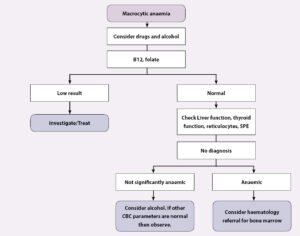OTC and Prescription Medications for Diarrhea
Medications for Diarrhea: OTC vs Prescription Options
Introduction: Understanding Diarrhea Treatment
Diarrhea is an uncomfortable condition that can interrupt your daily life. While it often resolves on its own without the need for medications, many people turn to over-the-counter (OTC) treatments for relief. However, in some cases, prescription medications may be necessary, especially when diarrhea is linked to an underlying health condition. This article explores both OTC and prescription options for managing diarrhea.
Over-the-Counter (OTC) Medications for Diarrhea
OTC medications are a common choice for treating occasional diarrhea. They typically include active ingredients such as loperamide or bismuth subsalicylate. These medications can effectively control symptoms, but they may not address the root cause of persistent or severe diarrhea.
Imodium (Loperamide) for Diarrhea Relief
Imodium, with its active ingredient loperamide, is one of the most popular OTC medications for diarrhea. It is available in various forms, including tablets, capsules, and liquids. For those dealing with gas-related discomfort, Imodium Multi-Symptom Relief combines loperamide with simethicone, which helps alleviate bloating and gas.
Recommended Dosages for Imodium (Loperamide)
-
Adults and children aged 12 and older: Take 4 mg after the first loose stool, then 2 mg after each subsequent loose stool. Do not exceed 8 mg in 24 hours.
-
Children aged 9–11: Take 2 mg after the first loose stool, then 1 mg after each subsequent loose stool. Limit to 3 pills in 24 hours.
-
Children aged 6–8: Take 2 mg after the first loose stool, then 1 mg after each subsequent loose stool. Do not exceed 2 pills in 24 hours.
Loperamide is generally safe for managing traveler’s diarrhea but should be avoided if you have symptoms like fever, bloody stools, or a history of heart issues. Always consult with a healthcare provider before use, especially during pregnancy or breastfeeding.
Pepto-Bismol (Bismuth Subsalicylate) for Diarrhea
Pepto-Bismol contains bismuth subsalicylate, which is effective not only for diarrhea but also for nausea, heartburn, and indigestion. It comes in different forms, including tablets and liquid suspensions. Bismuth subsalicylate can sometimes cause side effects like a temporary darkening of stools or the tongue.
Recommended Dosages for Pepto-Bismol
-
Adults and children aged 12 and older: Take 2 tablets every 30 minutes as needed, up to a maximum of 16 tablets in 24 hours.
-
Adults and children aged 12 and older (liquid form): Take 10 mL every 30 to 60 minutes as needed, not exceeding 240 mL in 24 hours.
Pepto-Bismol is not recommended for children under 12 due to the risk of Reye’s syndrome. It is also not suitable for individuals with a history of gastrointestinal ulcers, bleeding disorders, or those on blood-thinning medications.
Kaopectate (Bismuth Subsalicylate)
Kaopectate, similar to Pepto-Bismol, contains bismuth subsalicylate and is available in both chewable tablet and liquid form. It offers a taste alternative to Pepto-Bismol but carries the same precautions and potential side effects. Like Pepto-Bismol, Kaopectate should be used cautiously and is not recommended for children under 12.
Prescription Medications for Diarrhea
When diarrhea is caused by chronic conditions like irritable bowel syndrome with diarrhea (IBS-D), prescription medications may be necessary. IBS-D symptoms include severe abdominal pain, a constant need to have bowel movements, and a significant impact on daily activities.
Alosetron for IBS-D
Alosetron, sold under the brand name Lotronex, is FDA-approved for the treatment of chronic IBS-D in women. It works by regulating bowel movements and reducing symptoms such as abdominal pain. The typical starting dose is 0.5 mg twice daily, which can be increased to 1 mg twice daily after 4 weeks if necessary.
Alosetron is not recommended for men or children, and it should only be used by women who have not responded to other treatments. Serious side effects, including ischemic colitis, can occur, so it is important to follow medical guidance carefully.
Expert Tips for Managing Diarrhea
-
Stay Hydrated: Diarrhea can lead to dehydration, so drink plenty of fluids, including water and oral rehydration solutions, to replenish lost electrolytes.
-
Monitor for Severe Symptoms: If diarrhea is accompanied by fever, blood in the stool, or persistent symptoms, seek medical attention promptly.
-
Follow Dosage Instructions: Always adhere to the recommended dosages of medications and consult a healthcare provider if symptoms persist.
Key Takeaways
-
OTC medications like Imodium and Pepto-Bismol can provide relief for occasional diarrhea.
-
Prescription medications may be required for chronic or severe cases, such as IBS-D.
-
Always consult a healthcare provider before starting any medication, especially if you are pregnant, breastfeeding, or have underlying health conditions.








